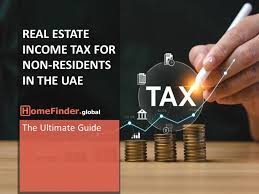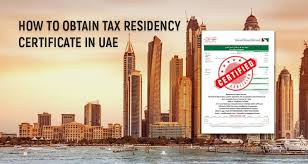Now Reading: Understanding Real Estate Tax Residency Rules in the UAE
-
01
Understanding Real Estate Tax Residency Rules in the UAE
Understanding Real Estate Tax Residency Rules in the UAE

Table of Contents
The United Arab Emirates (UAE) has long been a favored destination for expatriates and investors due to its tax-free environment and robust real estate market. However, with the introduction of new tax residency rules effective from March 1, 2023, individuals and entities must now navigate a more structured framework to determine their tax residency status, especially concerning real estate investments.
1. Defining Tax Residency in the UAE

Under Cabinet Decision No. 85 of 2022, the UAE established clear criteria for determining tax residency for both individuals and legal entities:
For Individuals:
An individual is considered a UAE tax resident if they meet any of the following conditions:
- Physical Presence: The individual was physically present in the UAE for 183 days or more during a consecutive 12-month period.
- 90-Day Rule: The individual was physically present in the UAE for 90 days or more during a consecutive 12-month period and:
- Holds a valid UAE residence permit.
- Has a permanent place of residence in the UAE.
- Carries on employment or business in the UAE.
Additionally, the individual’s usual or primary place of residence and their center of financial and personal interests must be in the UAE .
For Legal Entities:
A legal entity is considered a UAE tax resident if it is:
- Established, formed, or recognized in the UAE, excluding a UAE branch registered by a foreign entity.
These criteria align with international standards and provide clarity for individuals and entities regarding their tax residency status in the UAE .
2. Implications for Real Estate Investors

For individuals and entities involved in real estate investments in the UAE, understanding tax residency is crucial for several reasons:
A. Eligibility for Tax Residency Certificates
Tax residency certificates (TRCs) are essential for:
- Claiming benefits under Double Taxation Agreements (DTAs) the UAE has signed with over 130 countries.
- Establishing tax residency status for personal or corporate purposes.
To obtain a TRC, individuals and entities must meet the domestic tax residency criteria outlined above and apply through the UAE’s Federal Tax Authority (FTA) portal .
B. Impact on Rental Income Taxation
While the UAE does not impose personal income tax on individuals, understanding tax residency is vital for:
- Determining the taxability of rental income in the individual’s home country.
- Complying with tax obligations in the individual’s home country, especially if they are considered tax residents there.
For instance, UK residents receiving rental income from UAE properties must declare this income to HM Revenue & Customs (HMRC), as failure to do so may result in penalties .
C. Capital Gains Tax Considerations
The UAE does not levy capital gains tax on the sale of real estate. However, tax residency status can affect:
- The tax treatment of capital gains in the individual’s home country.
- Eligibility for tax exemptions or reliefs under DTAs.
For example, Indian nationals residing in the UAE may benefit from tax exemptions on capital gains from real estate transactions in India, provided they meet the residency criteria under the India-UAE DTA .
3. Real Estate Ownership and Tax Residency
Owning property in the UAE does not automatically confer tax residency. To establish tax residency, individuals must meet the physical presence and other criteria specified above. Merely purchasing property does not grant the right to claim tax residency status or the associated benefits.
4. Practical Steps for Real Estate Investors
To navigate the UAE’s tax residency rules effectively, real estate investors should:
- Maintain Detailed Records: Keep comprehensive records of travel dates, residence permits, and property ownership documents to substantiate claims of tax residency.
- Consult Tax Professionals: Engage with tax advisors familiar with UAE tax laws and international tax treaties to ensure compliance and optimize tax benefits.
- Apply for TRCs Promptly: Once tax residency is established, apply for TRCs through the FTA portal to avail of DTA benefits and confirm tax residency status.
- Understand Home Country Tax Obligations: Be aware of tax obligations in the home country, as owning property in the UAE may have tax implications there.
5. Conclusion
The UAE’s introduction of clear tax residency rules provides greater certainty for individuals and entities engaged in real estate investments. By understanding and adhering to these rules, investors can ensure compliance, optimize tax benefits, and make informed decisions regarding their real estate holdings in the UAE.
WATCH MORE: https://www.youtube.com/watch?v=O7jKPF6x4kk
READ MORE: Off-Plan Property Taxation: 7 Powerful Insights from India and the UAE Compared






















